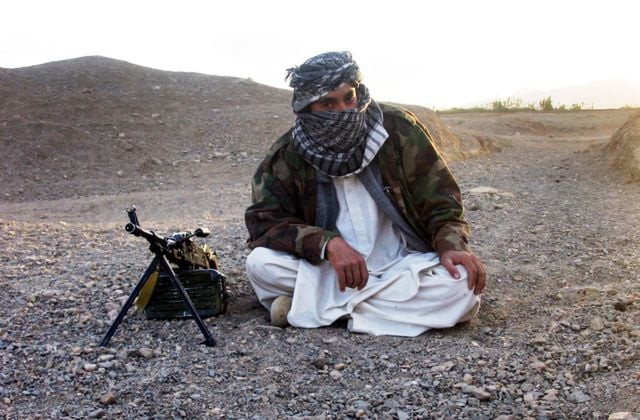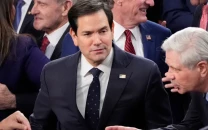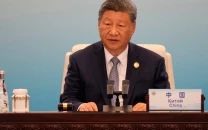Taliban move could help Afghan peace drive: Analysts
Taliban's move to open a political office abroad marks a significant step towards a negotiated end to Afghanistan war.

The Taliban announced on Tuesday that they had come to an "initial agreement with relevant sides including Qatar" to set up their first representative office outside Afghanistan.
Analysts said they expected the office to be located in the oil-rich state, and hailed the gesture as a step back from the Taliban's previous refusal to negotiate until all foreign troops have left Afghan soil.
"I think this is positive news for peace in Afghanistan," Giran Hiwad, of the Kabul-based think-tank, Afghanistan's Analyst Network, told AFP Wednesday.
"Until yesterday the Taliban were not even talking about talks. But now they say they are prepared to open an office in Qatar."
If the move materialises it could be a landmark in the search for peace after an 11-year war waged by the Taliban against the government of President Hamid Karzai and its US and NATO allies.
Haroun Mir of Afghanistan's Centre for Research and Policy Studies said the opening of an office would be "good news for peace" but a setback for Karzai as the Taliban pursued direct talks with Washington.
"This shows that the Taliban are ready for talks, this shows that they are under pressure and now they want to negotiate," Mir said.
But the Taliban, who were ousted from power by a US-led invasion after the 2001 attacks on New York and Washington, wanted "to negotiate directly with the US in order to bypass the government in Kabul," he said.
"And finally they were able to convince the US and certainly it's a big achievement for the Taliban and a setback for the government in Kabul."
The Karzai government, which had sought to drive any peace process itself within the country, had been outmanoeuvred by the Taliban, Mir said.
Karzai has agreed that if Washington wants to set up a Taliban address in Qatar to enable peace talks he will not stand in the way, as long as those talks are led by his administration.
But the possible shape of any negotiations was elusive Wednesday, with government spokesmen failing to respond to requests for reaction and a spokesman for the Taliban refusing to comment further or provide details.
Asked to confirm that Qatar would definitely be the site for the new office, the Taliban's Yousuf Ahmadi told AFP: "I'm not going to add or change a single word to what we have said in the statement."
However, a senior member of the government-appointed High Peace Council, Esmael Qasimyar, said: "We welcome and agree that Taliban should have an address, but we still prefer the address to be inside Afghanistan.
"We are optimistic and welcome the move, but the talks should be transparent, their office in Qatar should have a legal basis, it should only be for talks between Afghans."
The United States said in reaction to the Taliban statement that the insurgents must abandon violence before any real peace process can begin in Afghanistan.
"We welcome any step along the road... of the Afghan-led process towards reconciliation," White House spokesman Jay Carney said, while adding that the conditions for that so-called reconciliation "have not changed".
"We've always said that Taliban reconciliation would only come on the condition of breaking from al Qaeda, abandoning violence and abiding by the Afghan constitution, and that remains the case."
But in a sign that the killing is unlikely to stop soon, despite talk about talks, two suicide bombings killed some 15 people in the southern city of Kandahar on the day the statement was issued.
In Pakistan, a senior government official said: "Afghanistan is a sovereign country and Pakistan will support any move which can bring peace and stability in Afghanistan".
"We are very clear that any peace initiative should be Afghan-led and Afghan owned".
There are still about 130,000 US-led forces fighting the Taliban-led insurgency across Afghanistan, with coalition combat troops set to leave the country by the end of 2014, handing control for security to Afghan forces.
But the US and its Nato allies have been pressing for political solutions to secure an end to the war.
The death toll of coalition service personnel in 2011 was 566 and includes at least 417 from the US and 45 from Britain, according to an AFP tally based on figures from independent website icasualties.org.
The number is down from a wartime high of 711 in 2010 but up from 521 in 2009.



















COMMENTS
Comments are moderated and generally will be posted if they are on-topic and not abusive.
For more information, please see our Comments FAQ